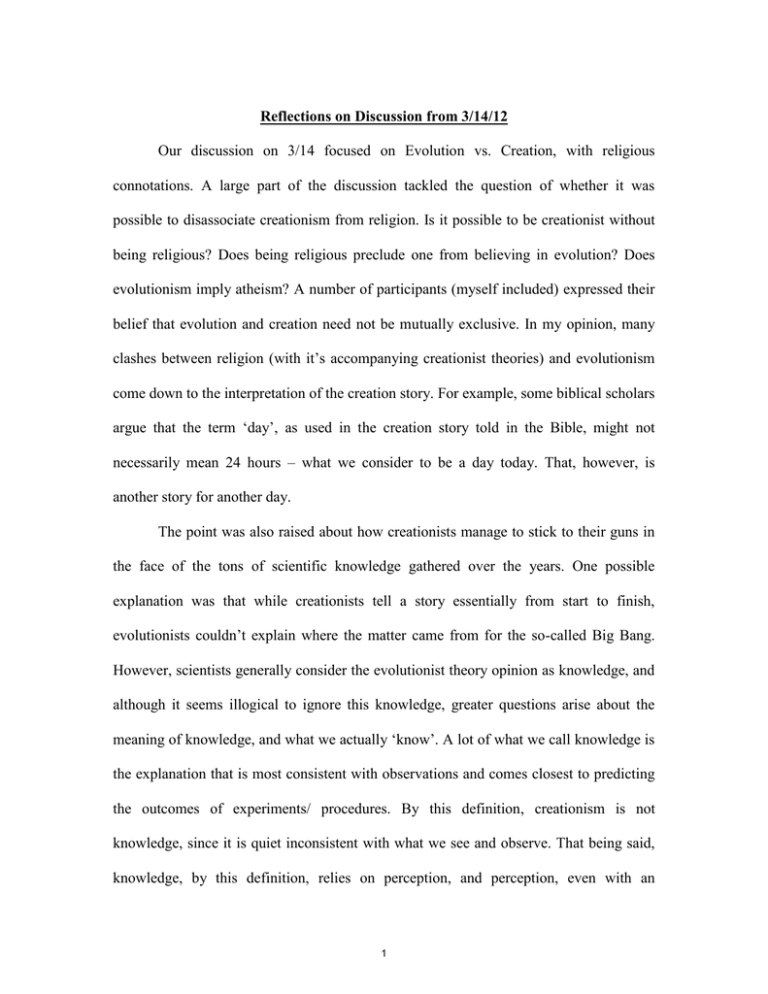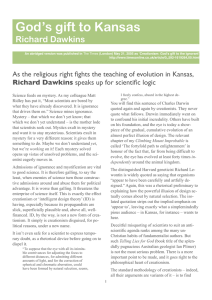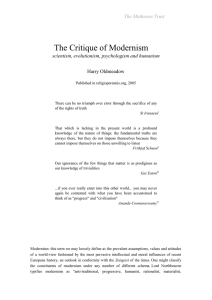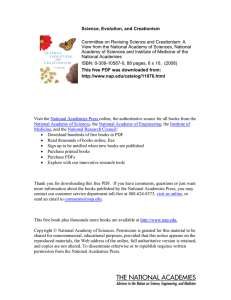Our discussion on 3/14 focused ... connotations. A large part of ... Reflections on Discussion from 3/14/12
advertisement

Reflections on Discussion from 3/14/12 Our discussion on 3/14 focused on Evolution vs. Creation, with religious connotations. A large part of the discussion tackled the question of whether it was possible to disassociate creationism from religion. Is it possible to be creationist without being religious? Does being religious preclude one from believing in evolution? Does evolutionism imply atheism? A number of participants (myself included) expressed their belief that evolution and creation need not be mutually exclusive. In my opinion, many clashes between religion (with it’s accompanying creationist theories) and evolutionism come down to the interpretation of the creation story. For example, some biblical scholars argue that the term ‘day’, as used in the creation story told in the Bible, might not necessarily mean 24 hours – what we consider to be a day today. That, however, is another story for another day. The point was also raised about how creationists manage to stick to their guns in the face of the tons of scientific knowledge gathered over the years. One possible explanation was that while creationists tell a story essentially from start to finish, evolutionists couldn’t explain where the matter came from for the so-called Big Bang. However, scientists generally consider the evolutionist theory opinion as knowledge, and although it seems illogical to ignore this knowledge, greater questions arise about the meaning of knowledge, and what we actually ‘know’. A lot of what we call knowledge is the explanation that is most consistent with observations and comes closest to predicting the outcomes of experiments/ procedures. By this definition, creationism is not knowledge, since it is quiet inconsistent with what we see and observe. That being said, knowledge, by this definition, relies on perception, and perception, even with an 1 objective attitude, is quite subjective. Herein lies another conundrum, even more fundamental that the sorts of arguments often given for or against evolutionism. The question of whether creationism should be taught in schools as a counter theory to evolution was a real sticking point. Some argued that it went against the principles of separation of church and state to do so, while others claimed it was an inherent bias — something that goes against the fundamental principles of science in itself. However, given the variety in the creation stories told by different religions, parading the Christian version (since Christianity is the most populous religion in the US) as an example of an alternative theory would also count as a bias against the other religions. 2 MIT OpenCourseWare http://ocw.mit.edu 17.S914 Conversations You Can't Have on Campus: Race, Ethnicity, Gender and Identity Spring 2012 For information about citing these materials or our Terms of Use, visit: http://ocw.mit.edu/terms.



